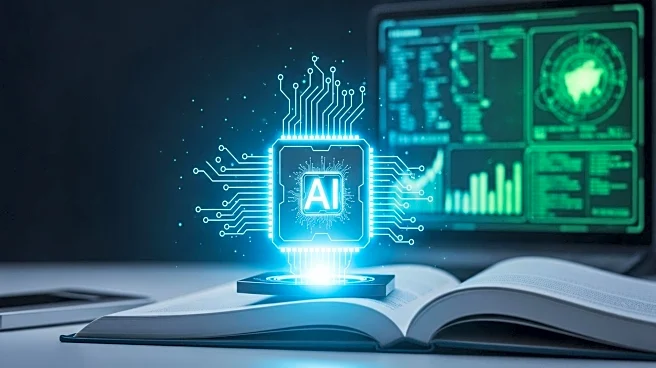What is the story about?
What's Happening?
AI tools such as ChatGPT, Grammarly, and EssayGenius are increasingly being used by students to complete assignments, raising concerns about academic integrity. These tools can generate essays and other written work quickly, often resulting in submissions that lack the depth and originality expected in academic settings. Educators are finding it challenging to identify AI-generated content, as these tools can mimic human writing styles to some extent. However, certain telltale signs, such as repetitive use of key terms from prompts and unnatural sentence structures, can indicate AI involvement. To combat this, educators are employing AI detection tools like GPTZero and Smodin, which can analyze assignments for AI-generated content. Additionally, teachers are encouraged to collect writing samples from students at the beginning of the semester to compare against suspected AI-written work.
Why It's Important?
The rise of AI tools in education poses significant challenges to maintaining academic integrity. If left unchecked, the use of AI to complete assignments could undermine the educational process, as students may bypass critical learning experiences. This trend could lead to a devaluation of academic qualifications and a lack of preparedness among graduates entering the workforce. By identifying and addressing AI-generated work, educators can uphold academic standards and ensure that students engage with the material meaningfully. Furthermore, understanding AI's capabilities allows educators to adapt their teaching methods and assessment strategies to better prepare students for a future where AI is prevalent.
What's Next?
Educators are likely to continue refining their strategies for detecting AI-generated content, potentially incorporating more sophisticated AI detection tools into their assessment processes. Schools and universities may also develop policies and guidelines to address the ethical use of AI in academic settings. As AI technology evolves, ongoing dialogue between educators, students, and technology developers will be crucial to balance the benefits of AI with the need to maintain academic integrity. Additionally, there may be increased emphasis on teaching students about the ethical implications of using AI in their work.
Beyond the Headlines
The integration of AI in education raises broader ethical and cultural questions about the role of technology in learning. As AI becomes more embedded in educational practices, there is a need to consider how it can be used responsibly to enhance learning rather than replace critical thinking and creativity. This development also highlights the importance of digital literacy, as students must learn to navigate and critically assess AI-generated content. The conversation around AI in education is likely to expand to include discussions on privacy, data security, and the potential for AI to perpetuate biases if not carefully managed.















